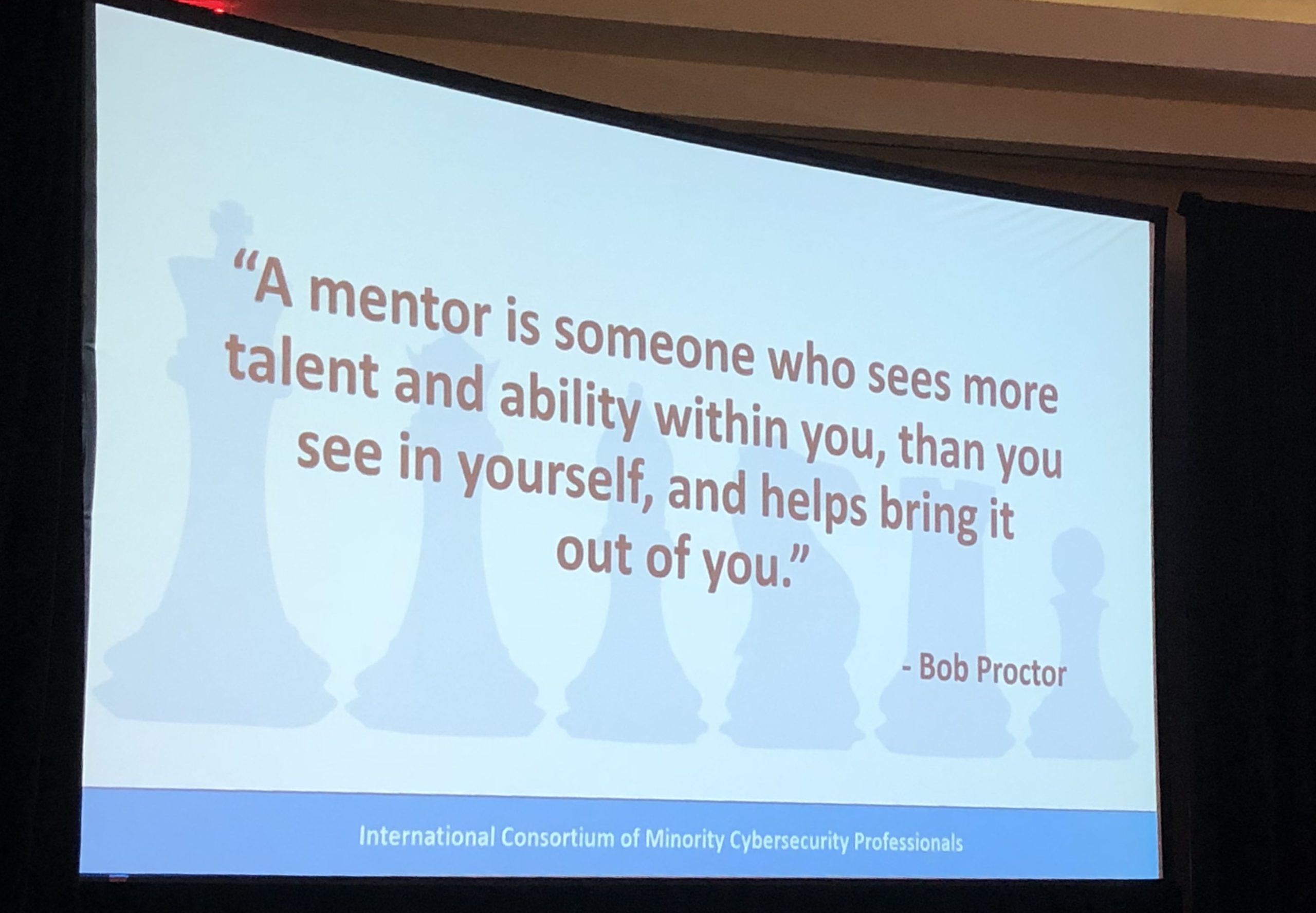This week I attended the International Consortium of Minority Cybersecurity Professionals (ICMCP) National Conference in Atlanta. There were a lot of great sessions and events covering a wide range of security topics, but one stood out in particular, Building a Bridge to Our Future: One Mentee at a Time, a panel of security professionals all at different points in their careers. Whether you’re a student or experienced professional, mentors are valuable resources, and we all need one.
Here are my answers to some frequently asked questions regarding mentors:
What is a mentor?
The textbook definition of mentor is an experienced and trusted advisor. Mentors are people you look up to and can offer sound advice in different aspects of your life. In school, mentors can be professors or upperclassmen. At work, they are typically employees with a few more years under their belts than their mentees.
How does mentorship work?
Some mentors and mentees schedule regular times to talk, and others just speak as necessary. Find out what works for you both and stick to it! It’s up to you to determine the role your mentor plays in your life, so be prepared with topics and questions to steer conversations in a way that will help you.
With that, it’s ok to have more than one mentor. I have a few mentors that I go to for different topics. Some are experienced professionals, and one is still a student. Don’t feel limited to just one official mentor. Build your network!
Do keep this in mind: for a mentor – mentee relationship to be successful, it should be just that – a relationship. Get to know your mentor as an individual, not just someone you go to when you need help.
Where do I find a mentor?
Mentors are everywhere. There is someone somewhere who has done what you want to do or experienced what you’re experiencing.
Students: Reach out to professors that teach classes or do research in areas you’re interested in. Join clubs that appeal to you and talk to their leadership members or upperclassmen. Whether on LinkedIn, in class, or at an internship, feel free to reach out to people that inspire you. One of mentors called it “using your intern privilege,” but this applies in all spaces. People will want to help you, so don’t be shy!
Transitioning Professionals: If you’re looking to move into a new area, your mentors might be strangers or people in the same circle as you. Do research on the new path you want to take and find out who the experienced people are. Find out what you can about their background including their education and common interests. Contact people that seem like a good fit and build relationships with them. Here is some advice on how to introduce yourself to strangers on LinkedIn. Also reach out to former coworkers and bosses as well as family and friends to see who might be able to point you in the right direction.
Experienced Professionals: Network with people at your company and others. At work, look for mentors on your team or in the same division as you. Attend company events and network with employees on other teams as well. Look for people in positions you would like to be in or experience in areas you’re interested in. The same goes for mentors at other companies. Attend conferences in your industry, and network network network. Also, be open to mentoring junior professionals as well! You might learn a lot from them too.
